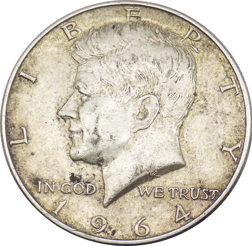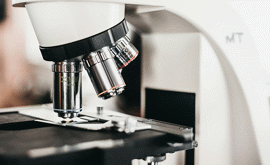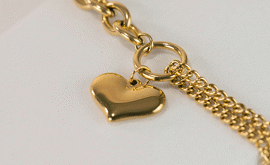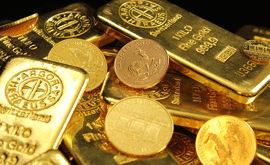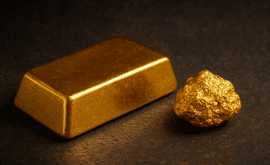Why Do Silver Coins Tarnish?
Silver is one of the world’s most treasured precious metals, with the first evidence of silver mining dating back to 3000 B.C. This aesthetically pleasing metal is not only used as a timeless store of value in the form of silver coins and bars, but is also widely used in jewellery, tableware and technology. But for all its uses, have you ever wondered why silver loses its gleam and can tarnish over time? In this article, we will explore the chemistry behind this phenomenon, how to protect your silver from tarnishing, and whether it can affect the value of your silver coins and bars.
What is tarnish?
Tarnish, also known as ‘toning’, is the gradual development of a thin layer of natural discolouration and corrosion that can form on the surface of silver items over time. This occurrence is different to rust, as tarnishing is purely superficial, affecting only the top few layers of the metal. Interestingly, this process can often act as a protective layer to protect the layers underneath from severe corrosion and damage. While tarnish may change the appearance of a silver object, it is generally only a surface-level transformation which does not have a negative impact on the structure of the metal.
Toning colours
There is a number of different colours of tarnish/toning that can appear on coins.
Black: Unearthed ancient silver coins are often black caused by the sulphides formed by organic matter in the earth.
Green: Silver coins can turn green if they are alloyed with copper, the green colour resulting from copper carbonate or copper chloride.
Yellow: Early toning on silver coins is yellow.
Rainbow: The yellow colour can progress to magenta to cyan to black. This results from the refracting of different wavelengths of light through the film, and resembles the rainbow effect that appears when a layer of oil lays on top of water.
Silver tarnish FAQs
The following are some of the most common questions we are often asked about tarnishing on silver:
Why does silver tarnish?
Silver tarnishes due to a chemical reaction that naturally occurs when the silver is exposed to moisture and chemicals in the air. When the atoms of silver come into contact with oxygen, a film of silver sulphide forms on the coin surface, with the underlying layers not being affected. Items made of silver will usually tarnish quickly in places where there is high humidity or air pollution.
How do I keep my silver coins and bars from tarnishing?
As humidity accelerates the rate of tarnishing, the best way to protect your silver bullion is to store your silver bullion in a container that limits its exposure to the air and the elements. Many specially designed capsules and tubes are also available in which to help protect your silver coins and bars.
It’s also helpful to avoid using your bare hands to pick up your silver bullion. Using white cotton gloves stops the oils from your fingers from being deposited on the surface of your precious metals.
The more pure the alloy, the less susceptible it is to tarnish. Silver of 999.0 fineness does not easily tarnish, so investment silver coins and silver bars are less likely to tarnish when stored safely, but may still discolour slightly over time.
How can I remove tarnish from my silver bullion?
Most collectors would recommend that you should not clean your silver coins, and it is safer to leave the tarnish as traditional silver cleaners are often abrasive. In fact, many coin collectors prefer a coin which features its original patina as it can sometimes enhance the appearance of the coin. Coins can very easily be ruined by careless cleaning, and toning is known to actually help to prevent further toning.
Some collectors and investors choose to correct dark tarnishing by using ‘dip’. This is a solvent that removes a very thin layer from the surface of the silver item. Many in the industry consider this the only acceptable method of cleaning a coin, as long as it is done properly (by a professional). However, it is often best to avoid cleaning silver coins altogether, if possible.
Tarnish vs rust - what is the difference?
Tarnish and rust are both forms of corrosion, but their composition, causes, and impact on metals are different. Tarnish is the result of the reaction between a metal, such as silver, and elements in the surrounding environment forming a thin, superficial layer of discolouration on the metal's surface which does not lead to structural damage.
Rust is the corrosion of iron and its alloys, caused by the reaction between the metal, oxygen and water. Unlike tarnish, rust eats into the metal and leads to structural damage over time.
Does tarnish affect the value of silver bullion?
The values of silver bullion coins and silver bullion bars should not be affected by tarnishing. This is because silver bullion products are typically valued by weight and purity, not specifically by condition and aesthetic appeal.
In the case of numismatic coin items, most collectors prefer coins to be in a natural state and would expect an older silver coin to have some natural toning. Patina and toning can be subjective, and in some instances, this can even increase the price of a coin.
Tips to keep your silver from tarnishing
- Store silver items in a cool, dry place away from direct sunlight and humidity.
- Store your silver bullion in containers that limit its exposure to the air and the elements.
- Avoid exposing silver to harsh chemicals such as household cleaners and perfumes.
- Use silica gel packets in storage areas to absorb moisture and prevent tarnishing.
- Handle silver items with clean hands or wear cotton gloves to minimise the transfer of oils and contaminants.
Atkinsons Bullion and Coins offer a wide selection of silver coins and bars appealing to collectors of all tastes and budgets. If you have any questions or would like to know more about buying or selling silver bullion, please call and speak to a member of our knowledgeable team on 0121 355 0620 or email us at info@atkinsonsbullion.com.
Why Join Our Mailing List?
By signing up, you'll gain access to exclusive updates, early announcements, and tailored insights into the world of bullion and precious metals.

Latest Updates On Bullion

New Releases

Special Offers

Market Analysis
This blog represents one person’s opinion only. Please note, gold and silver prices may go down as well as up. Atkinsons Bullion & Coins accepts no responsibility for any losses based on information we have provided. We do not offer investment advice. Please carry out your own research before making an investment decision.

